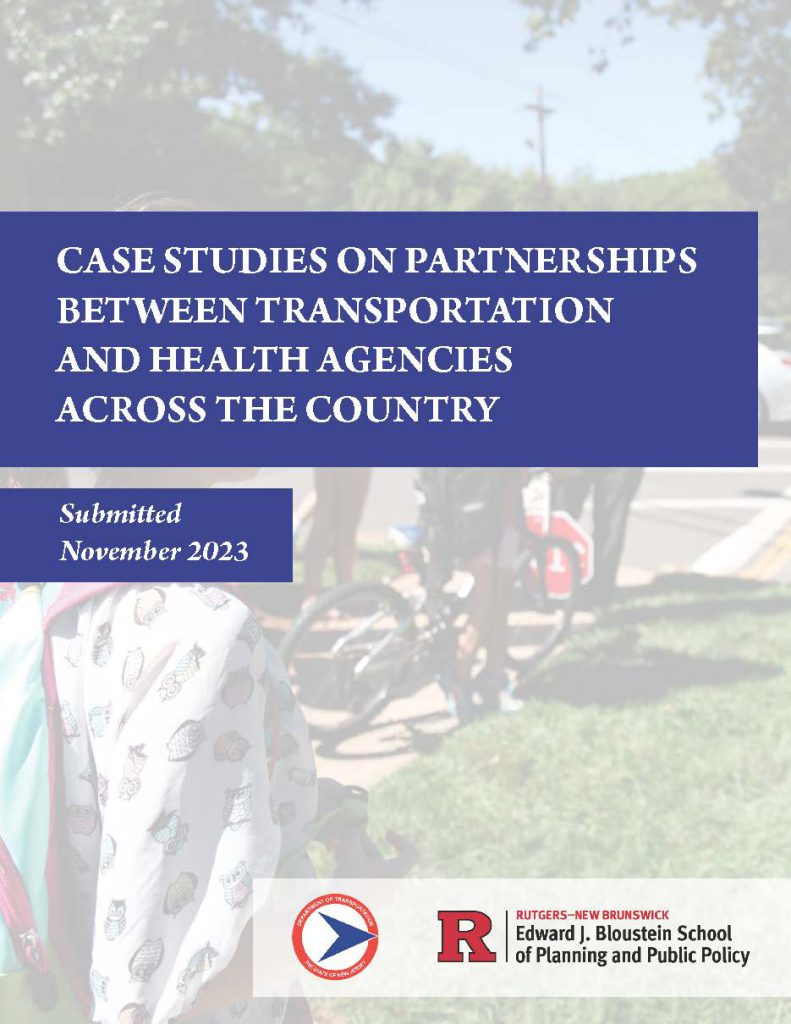Transportation has a profound impact on health. The way transportation systems are planned and designed shapes our built and social environments, providing or limiting opportunities to improve our health and well-being. A safe and multimodal transportation system enhances access to goods and services important for our health; conversely, a transportation system designed predominantly for private automobiles limits access to goods and services for people who do not own or drive a car.
This report examines how states around the country incorporate and apply different data collection and analysis methods in partnerships between transportation and health agencies to proactively improve health and safety outcomes. While there are many ways of linking transportation and health initiatives on the state level, this research focuses on two types of partnerships. The first looks at how states incorporate health data in project selection and evaluation criteria as well as in the project scoping and planning processes. The second type of partnership looks at how health outcome data is linked with crash data through data linkage programs. In studying state-level data-sharing partnerships between transportation and health initiatives, this research can help to identify new areas of concern and strategies that could be applied in New Jersey, to improve not just public health and public transportation in the state, but quality of life as well.
Read full report: Case Studies on Partnerships between Transportation and Health Agencies Across the Country
New Jersey Bicycle and Pedestrian Resource Center. (2024). Case Studies on Partnerships between Transportation and Health Agencies Across the Country. Retrieved from https://njbikeped.org/health-transportation-partnerships/

